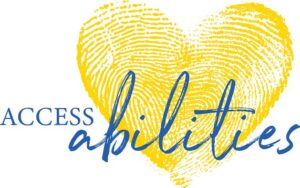The Professional Development Program (PDP)
AccessAbilities, Inc. has developed a non-traditional day program for individuals with disabilities that focuses on the individual’s goals set forth in a Individualized Support Plan.
Participants in our Professional Development Program have the opportunity to work on a variety of skills including:
- Academics
- Socialization
- Money management
- Daily living skills
- Recreation
- Fitness
- Aktion Club
The Benefit of the Professional Development Program
Participation in the AccessAbilities, Inc. PDP has a wide range of benefits including, but not limited to:
- A robust learning environment with differentiated instruction tailored to each individual's needs
- Learning programs based on a foundation of social skills and academic proficiency
- Consistent practice of healthy coping mechanisms and their practical application
- Exploration of subjects such as: mathematics, money skills, English (writing, reading, and phonics), current events, cooking, daily living skills, health, personal hygiene and physical education
- Review and practice of necessary skills to enter the workforce or begin further education at a trade school
- Diverse curriculum allows class members to flourish and expand their skills to become more confident and productive members of society
Rooms
The PDP is organized into several different rooms, each with a different subject/skill focus. Some rooms are divided into levels based on the individual's needs and functionality. The rooms are listed below with some examples of typical activities and curriculum:
Academics
- Single digit addition
- Role playing with every day monetary purchases
- 4-5 letter sight words
- Following directions worksheets and exercises
- Listen comprehension activities such as story time with a question and answer segment
Daily Living Skills
- Household chores like vacuuming, laundry, dishes, sweeping and mopping
- Oral hygiene
- Cooking and baking side dishes and snacks
Healthy Living
- Light exercise after lunch
- Occasional walks at the park or on our property
- Making healthy snacks
Arts and Crafts
- Making our own puffy paint
- Creating seasonal decorations for the building
- Creating favorite activities posters
Pre-Vocational and Life Skills
- Resume development
- Money management activities
- Apartment hunting
Functional Skills levels 1 and 2
Functional Skills level’s 1 and 2 offers our individuals the opportunities to learn many fun skills. We have implemented the TEACCH method in our rooms.
TEACCH Methods
Treatment and Education of Autistic and Related Communication-Handicapped Children (TEACCH) Methods, originally developed by the University of North Carolina School of Medicine, are based on the premise that individuals with disabilities are predominantly visual learners, so intervention strategies focus on physical and visual structure, schedules, work systems and task organization. Individualized systems aim to address difficulties with communication, organization, generalization, concepts, sensory processing, change and relating to others. At the core of TEACCH is the idea of structured teaching. Structured teaching is comprised of 3 components: physical organization, scheduling, and teaching methods. The developers of the TEACCH method have based their model on the idea that to effectively teach students a teacher must provide structure. This means they should set up the classroom so that the individuals understand where to be, what to do, and how to do it, all as independently as possible.

